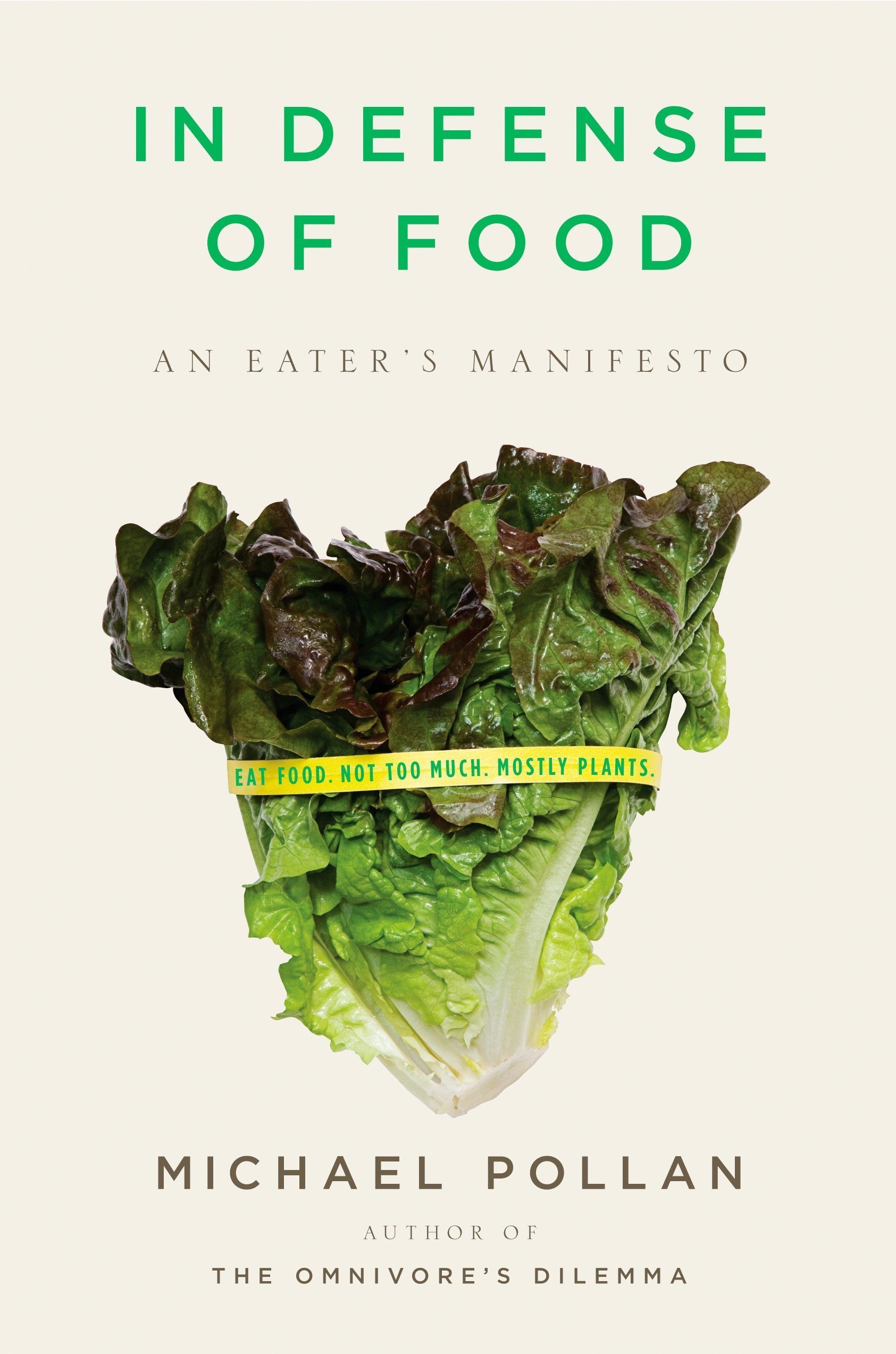In Defense of Food
While researching my upcoming piece for PRISM, focused on the story behind our tomatoes, I picked up Michael Pollan’s book In Defense of Food: An Eater’s Manifesto (Penguin). I’d already been familiar with his pithy, succinct mantra: Eat food. Not too much. Mostly plants. And I’d flipped through Food Rules: An Eater’s Manual (Penguin), an abbreviated version of IDOF, so I more or less knew what to expect.
Basically, this: we in the West eat terribly, consuming things that our predecessors wouldn’t recognize as food, and it’s part of an institutionalized system with a lot on the line, so it’s no wonder we have so many diet-related health problems (diabetes, heart disease, obesity, etc.), and that we really, really ought to reconsider our ways.
The first two sections of the book were slow-going for me, as Pollan explains and deconstructs “nutritionism” and the Western diet more generally. An in-depth explanation of the difference between omega-3 and omega-6 fatty acids among other things isn’t exactly riveting reading, at least to me. But he had to cover that ground to set the stage for the third and final section, focused on “food rules” — how to eat well when the odds of doing so in the West are stacked against us. That’s where his three-part mantra comes into play.
Our food choices take place within the context of networks of “social and ecological relationships,” Pollan says, and our food rules need to take this unavoidable interconnectedness into account:
When most of us think about food and health, we think in fairly narrow nutritionist terms — about our personal physical health and how the ingestion of this particular nutrient or rejection of that affects it. But I no longer think it’s possible to separate our bodily health from the health of the environment from which we eat or the environment in which we eat or, for that matter, from the health of our general outlook about food (and health). If my explorations of the food chain have taught me anything, it’s that it is a food chain, and all the links in it are in fact linked: the health of the soil to the health of the plants and animals we eat to the health of the food culture in which we eat them to the health of the eater, in body as well as mind.
As Christians, we might add spiritual health to that last line, believing as we do that we are to love and worship God not just with our hearts and minds but also with our bodies. And given our context, loving our neighbors and being good stewards of the creation in which we live — both at the core of the Christian life — requires coming to terms with the interconnectedness of our world, and asking hard questions about how our actions in the produce aisle and around the dinner table and everywhere else either contribute to the common good, or operate at cross-purposes with it.
How do you understand your food choices as a way of loving God and neighbor? What might the “abundant life” Jesus brings have to teach us about food and its relationship to the health of ourselves and our communities — not as fad but as spiritual discipline?
